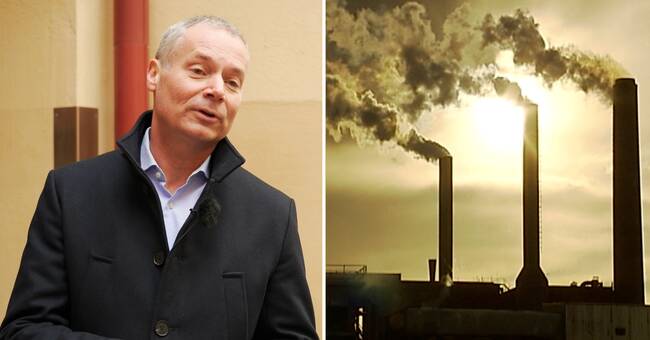- A tenth is not very much, whether you look at the level or in comparison with other countries.
We believe that the government could do much more, says Cecilia Hermansson, former chief economist at Swedbank and now vice chairman of the Climate Policy Council.
The task of the interdisciplinary expert body is to examine whether the government's policy is compatible with the climate goals and leads to Sweden no longer contributing to increased levels of greenhouse gases in the atmosphere by 2045, which is also called net zero emissions.
- The measures taken so far are not enough to reduce emissions enough.
This requires additional investments to reduce emissions in heavy sectors such as transport, industry and also for energy and electricity production, says Johan Kuylenstierna, chairman of the council, who also wants to see increased investments in charging infrastructure and simplified permit processes for, among other things, the expansion of the electricity grid.
- These processes are too slow today, which is one of the reasons why it is difficult to achieve the goals.
"Temporary emission reductions"
In 2019, Sweden's climate-affecting emissions decreased by 2.4 percent, but they need to be reduced by between six and ten percent per year to reach the net zero target by 2045. In 2020, emissions in the world decreased sharply due to the pandemic, but it is still not enough .
- These are temporary emission reductions and we are already seeing how they are increasing again.
It shows that we need an overall societal transformation, both in Sweden and abroad, says Johan Kuylenstierna.
"Could do more"
In this year's report, the Climate Policy Council focuses in particular on the government's recovery policy during the corona crisis.
Only ten percent of the budget efforts are judged to contribute positively to Sweden's ability to achieve the climate goals.
The Council calls for a greater climate perspective in all parts of society, not least in economic policy.
Neither the fiscal policy framework nor the basis for the Riksbank Act, which is currently being revised, has a clear climate perspective, which Cecilia Hermansson is critical of.
- Here you could do much more.

